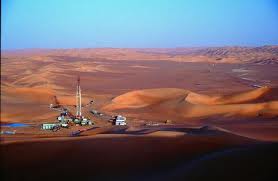Libya: Business As Usual, But What About Tamoil? – OpEd
By Arab News
When politics makes strange bedfellows, oil is often the motive for the relationship. For example, the United States strongly condemns and opposes Hugo Chavez while filling Venezuelan coffers with cash to feed America’s carbon addiction to the tune of over 900,000 barrels of socialist-made crude per day. We are seeing a similar phenomenon occurring in Libya. Europe needs imported oil and therefore it has traditionally done business with tyrants to satisfy its needs.
And what odder bedfellow than Muammar Qaddafi, a man who (unsuccessfully) demanded the city of New York turn Central Park into his personal campsite during a visit to the United Nations in 2009. There are at least as many examples of Qaddafi’s proclivities, strange behavior and outlandish comments as there are female bodyguards in his private security detail. But despite the man’s nuttiness, his country has oil and so the West has often danced to his tune. Every time a Western leader cozied up to this boorish Bedouin he was legitimized to his own people and to other Arab and African states.
Now, as Libya descends into civil war, the West has imposed sanctions aimed at dealing an economic blow to Qaddafi and his goons. But these sanctions exempt Tamoil petroleum company, owned by the Dutch-based holding company Oilinvest (Netherlands) B.V., which itself is owned by the $65-billion Libyan Investment Authority, which is one of the most opaque sovereign wealth funds in the world.

Tamoil’s presence in Europe includes three refineries, one each in Switzerland, Germany and Italy and thousands of petrol stations in Spain, Germany, the Netherlands and Italy. Tamoil’s European refineries supply two percent of Europe’s daily crude demand. Libya is also a major player in the global crude market, with 46 billion barrels of reserves, the largest in Africa. Western countries compete to win contracts to invest in oil extraction and refining, and so are often loath to upset those with decision-making authority.
For their part, the Europeans say Tamoil has given assurances that no revenue is making its way into the pockets of Qaddafi’s flowing robes, but with tax shelters and shell companies across the globe, it’s difficult to disprove that Tamoil’s assurances are little more than a placebo to sooth concerns that money is flowing from European consumers into the pockets of a tyrant. In a fascinating investigative piece by The Associated Press on the subject, money-laundering expert Michael Alkalay said that despite assurances that Tamoil money is not bankrolling Qaddafi or anyone associated with him, it would be “naive” to think Tamoil is operating independently. Governments, he added, are not doing enough to clamp down on Libyan assets.
Italy’s Finance Ministry insists that no freezing of assets is necessary because Tamoil’s subsidiary is cooperating with authorities. A Swiss Federal Council spokeswoman, on the other hand, told the AP that, “it’s not possible to monitor all transactions” to ensure compliance.
Defenders of the Tamoil exemption say whomever comes up behind Qaddafi will need an up-and-running state-owned enterprise to generate revenue. This is a legitimate argument, but it shouldn’t be used as a justification for exempting it from sanctions and not doing enough to ensure Libya’s holdings in Europe are not helping a delegitimized, tyrannical regime or its colorful, insane leader.
